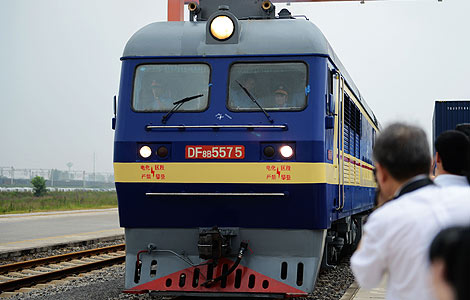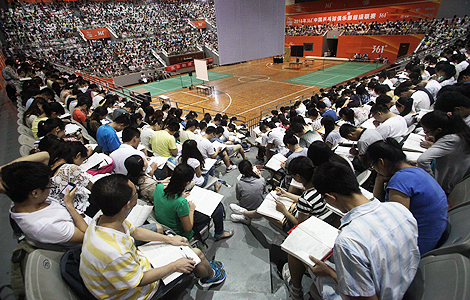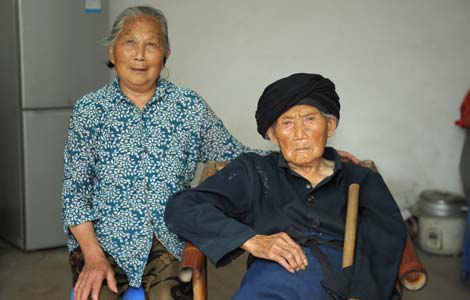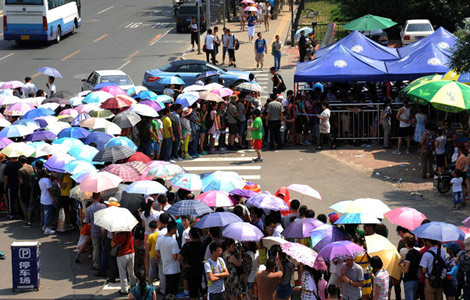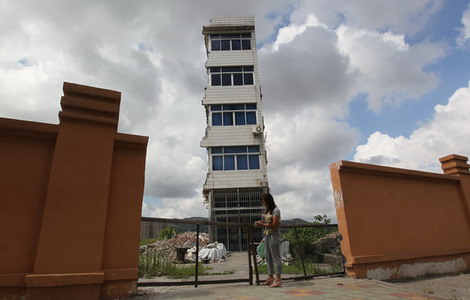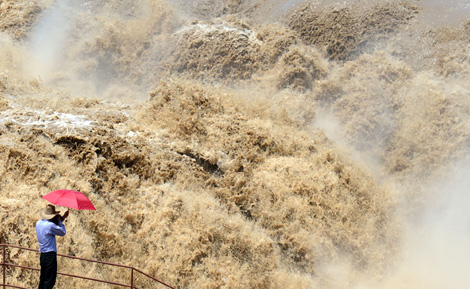

He added that his family's "curse" became a "blessing" once his daughter broke down her communication barriers and learned to harness her natural talent with numbers. Now 24, Li Jin is putting her mathematics skills to use as a researcher with a private engineering institute based in Zhongguancun, the capital's famous technology hub.
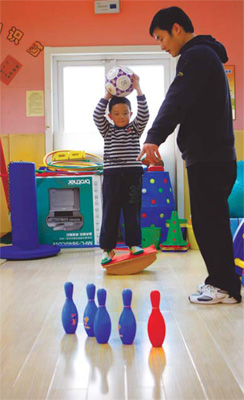 A boy receives his regular physical training at Anhua School. There are about 500 licensed special schools in the country. |
Experts say sufferers are often extremely intelligent, with about 10 percent displaying "unusual abilities", such as a great capacity to memorize numbers, words or facts. Tian at Stars and Rain argues that at least 50 percent of all autistic children have the potential to meet the standards of public education and join the nation's workforce.
"Fundamentally, autistic people need to be included into the social security system and allowed to study at public schools," she said.
Twelve students who graduated Anhua Intelligence Training School last summer have found jobs at hotels, including one autism sufferer, said Fan Xiaojie, director of its student career center.
They "are more patient at work and will not try to escape responsibility", she said when asked what her graduates would offer bosses. "They're also more motivated. They won't get bored with repetitive processes and will stick with the work schedules."
Working wonders
Another employment option for people with autism could be welfare factories, similar to ones operated in Japan.
In November 2009, 14 delegates from the Beijing Rehabilitation Association for Autistic Children visited Beach Town, a factory in Tokyo that employs 100 autistic workers aged 18 to 50. They make wheat, rice and bread goods, as well as plastic toys.
The plant, which is on private land and partially run by volunteers, receives an annual subsidy of 1.5 billion yen ($18 million) from the city government, while each worker receives 80,000 yen.
"Autistic children with high intelligence can be accepted by public schools, while others can be (vocationally) trained and work at welfare factories," suggested Jia, who joined the delegation to Japan. "However, China has a long way to go."
The psychologist added that, although she understands government needs time to adapt its education model for autistic children, the changes should be a priority.
Jia's association has attempted to find land to build a factory like Beach Town. Funds, however, are in short supply. So far, the only thing the group has managed to secure from the Beijing Disabled Persons' Federation is a free room at its headquarters in the capital's Xicheng district for diagnosing and educating autistic children.
Autism was categorized as a "mental illness" in 2006. According to the 11th Five-Year Plan (2006-2010) promulgated by the China Disabled Persons' Federation, 31 pilot cities, including Beijing, Shenzhen and Guangzhou, planned to construct autism rehabilitation facilities and train more special needs teachers.
"The government should pay more attention and invest more money into the welfare of autistic children," said Wen Hong, director of the federation's autism committee. "However, any constructive policies are still under discussion and will not be released soon."
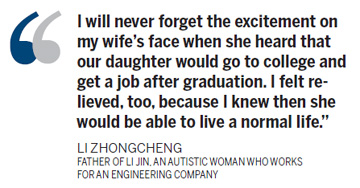
Authorities are also looking to address the unbalanced distribution of medical resources between rural and urban areas, which is forcing many to flock to the 28 psychiatric hospitals in major cities.
In Beijing, for example, only autistic children with hukou (permanent residency) in the capital can receive a monthly subsidy of 500 yuan to help with expenses.
"The subsidy is distributed according to the policy stipulated by the China Disabled Persons' Federation, so we have to abide by it," said Huang Xiaohong, a publicity officer with the Beijing Disabled Persons' Federation.
Wen added: "As autism is attracting more attention from the public and authorities, we're hoping more will be done to improve the situation."
Names of autistic sufferers have been changed on request.

